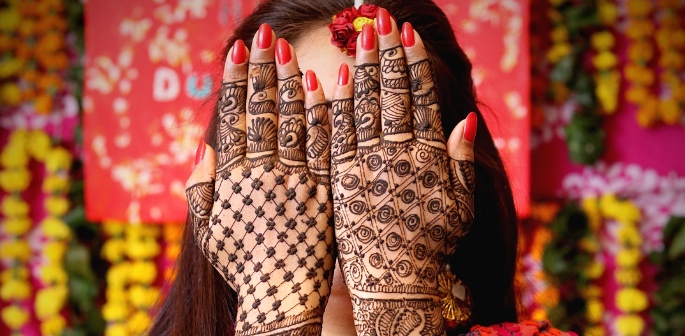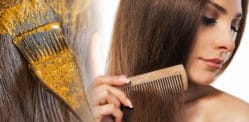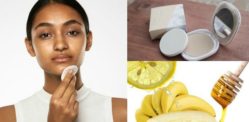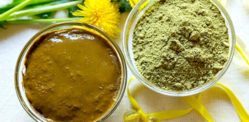"This same colour also penetrates your skin"
Henna has been used in South Asian communities for centuries.
It initially emerged as a form of body art for hands and feet, however, it is now also commonly used on hair and skin.
Hair dye in Britain is used 100 million times a year.
Almost 60% of these applications are taken place in the home rather than at expensive salons which use added chemicals and metallic salts.
More people are now beginning to use henna as an organic alternative to hair dyes, conditioners, skin powders and more.
In particular, natural henna hair dye is considered a good conditioner for your hair, making it stronger, thicker and shinier.
It can also help to restore the natural pH balance of your hair and scalp.
While organic mehndi is safe for your skin and hair, there are products with unhealthy additives.
These may cause an allergic reaction, irritate the skin, or even seep into the bloodstream through your hair.
Therefore, how can consumers identify what is the safest product for hair and skin?
Here are some of the ways to decipher the safest henna (and also the ones to avoid).
Ingredients
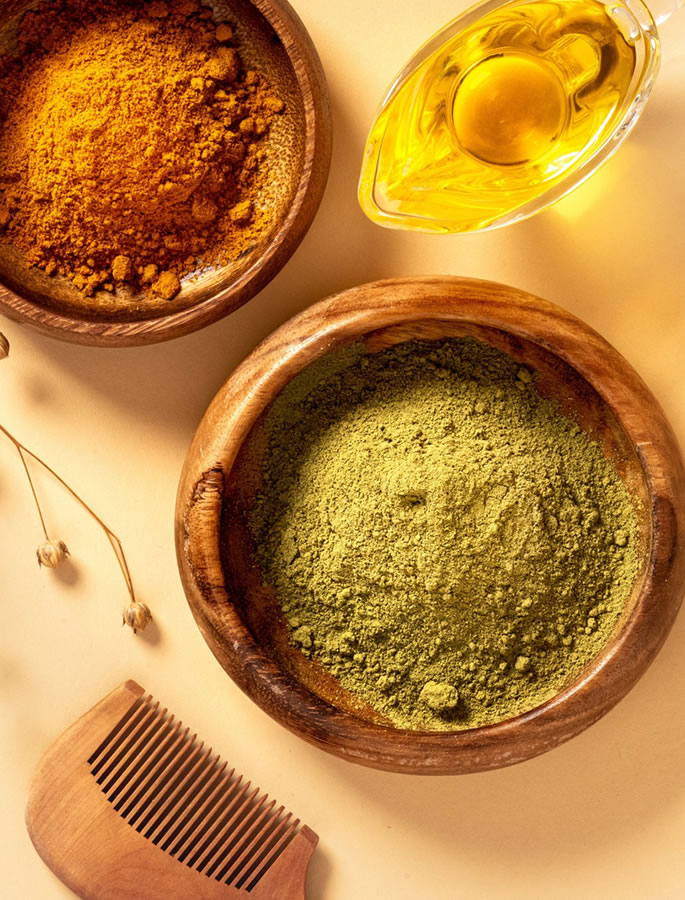
Henna has been widely used in Desi culture by our ancestors for thousands of years before the creation of chemicals.
Therefore, there is no reason why it cannot be made chemical-free today as well.
The skin and hair are safest when organic ingredients are used. But how can you check which henna is perfect for your skin, hair and scalp?
Synthetic hair dyes are especially known to swell inside your hair.
Lush co-founder Mark Constantine says:
“This same colour also penetrates your skin, goes into your bloodstream and enters your system.”
Therefore henna hair dye is very safe because it simply stains the outside of each individual hair strand.
It is advised to look for these ingredients:
- Organic Henna Powder – the easiest way to check your mehndi is safe.
- Liquid – water especially is great to mix henna powder with.
- Acidic Element – citrus is one useful way to extract the dye.
- Essential Oils – tea oils or lavender can be used to naturally darken the colour.
Smell & Colour
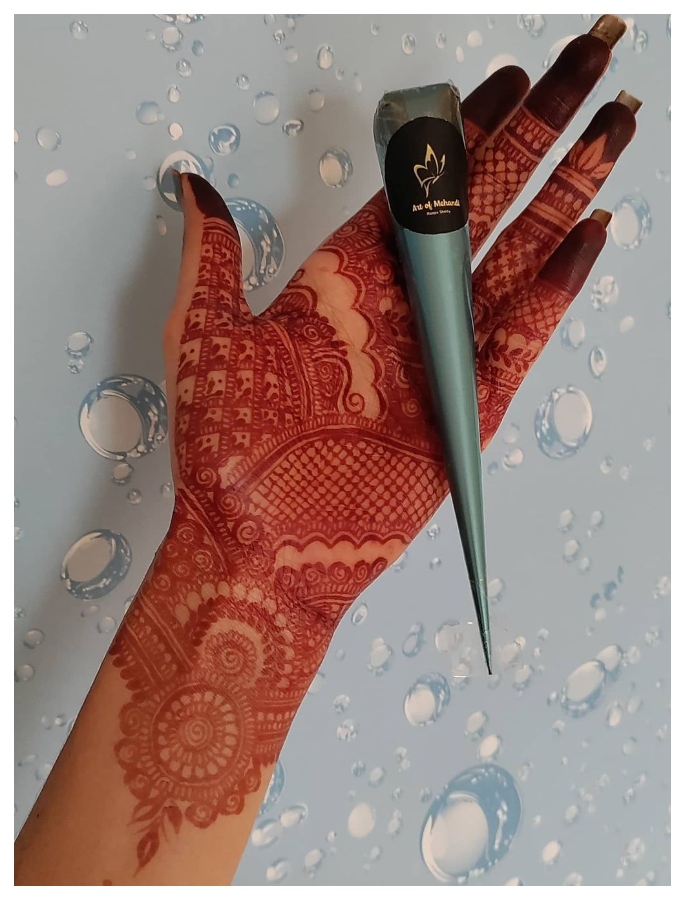
Organic henna has not been tampered with as much as others. Therefore the paste should smell very earthy (with a slight hint of any oil used).
In addition, the paste should be a rich orange-red hue and never black.
When applying it to the skin you need to wait until it has fully dried before you scrape it off.
One should look for a vibrant orange colour once peeled off.
This orange shade will turn brown after some time which will provide the darker colour that is most fashionable today.
Shelf Life
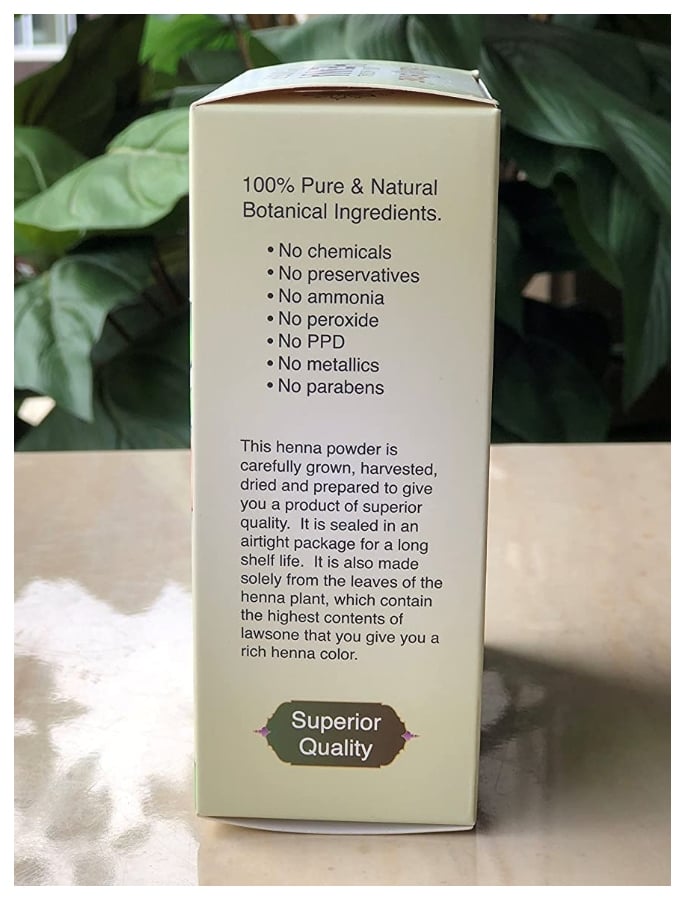
Another way to determine which mehndi is safest for your hair and skin is by noting the shelf life. This is because natural, safe henna does not usually have a long shelf life.
Companies combat this short shelf life by adding chemicals and preservatives.
However, it should be known that such additives expose its user to risks. Risks include redness, allergic reactions and more.
One way to check if a product does not contain added chemicals is whether it says to keep frozen until use.
If it does, this is a clear indicator that the paste is largely organic.
Which Henna is Unsafe?
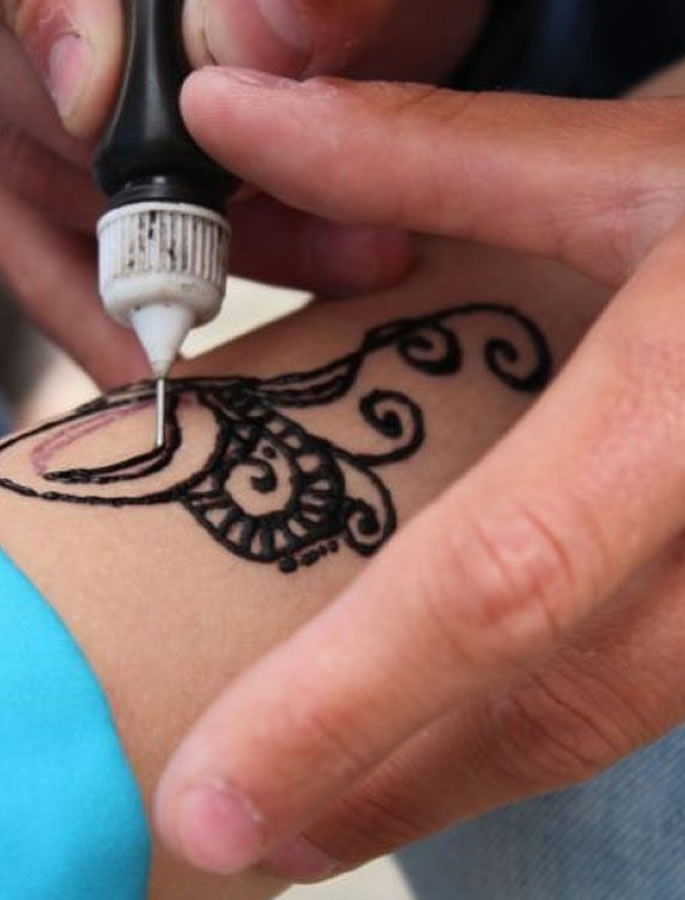
Looking at the ingredients, shelf life, smell and colour of your henna should help you to conclude if it is safe or not.
However, there are two henna products to definitely stay away from – black henna and henna that has been exposed to toxins.
Black Henna
The Henna plant, native to northern Africa, Asia and northern Australia, is perfectly safe to use.
However, black henna (usually used for temporary tattoos) does not contain any of the ingredients found in the Lawsonia Inermis plant.
The risks are found in the ingredients, specifically, a chemical called paraphenylenediamine (PPD).
Black henna contains high levels of PPD, which give a dark colour quickly.
But it can lead to allergic reactions and chemical burns.
Dr Chris Flower, director-general of the Cosmetic, Toiletry and Perfumery Association, says:
“The signs range from discomfort, such as burning or tingling, to painful stinging, swelling, redness and blistering of the skin.
“This can become very severe and lead to permanent scarring of the skin in the outline of the tattoo.”
He added: “Mention if this is the first time you have had such a tattoo, or if you have had one before, and whether you have ever had any reaction to hair dye in the past.
“You will probably be treated for chemical burns and possibly allergic reactions.”
Therefore, it is vital to look at the ingredients used in your henna product.
Toxic Henna
It is important to understand that the henna plant could have been exposed to contaminated water or sprayed with pesticides.
Many businesses that sell henna products do not check this.
However, organic farmers work tremendously hard to keep their plants healthy and safe.
They do this by using clean, filtered water and no chemicals. this limits the risk to your skin, hair and scalp.
Additives may be added to the paste in order to preserve it.
But they put you at risk of suffering skin reactions or expose you to carcinogens.
Freshly made henna is the way to avoid preservatives and other harmful chemicals.
Safe Products To Try
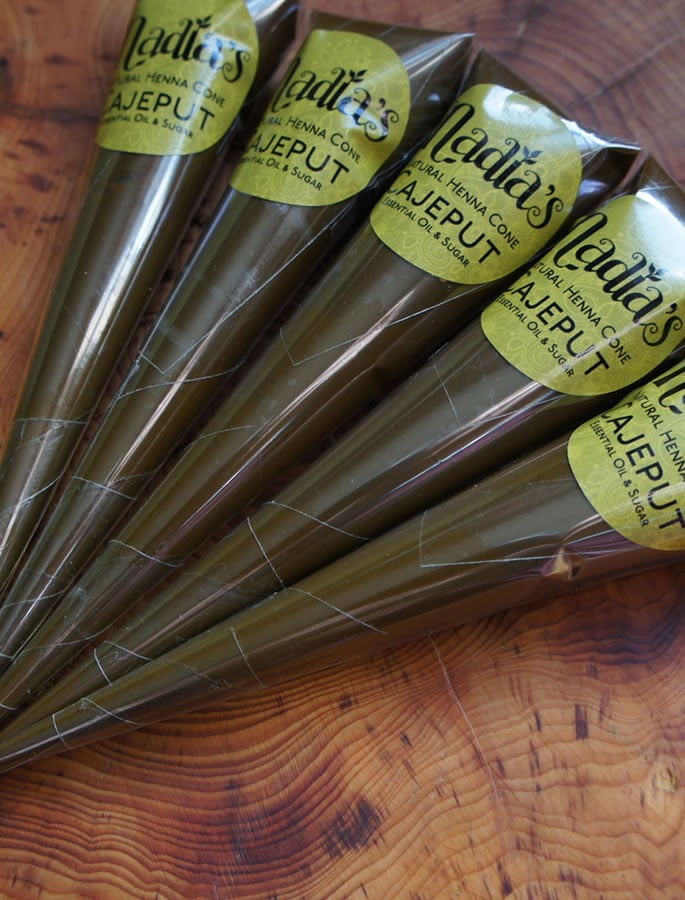
There are products on the market that have natural ingredients and will not cause harm to your skin and hair.
Here are some safe products to try:
The Henna Powder Kit – the organic henna powder can be used anywhere on your body. Grown in India, it combines natural powder with organic oils.
Morrocco Method’s henna hair dyes – these hair dyes are made with 100% pure plant dye. It is extremely safe as a hair dye and conditioner, with no chemicals, metallic salts, or PPD.
Fresh Henna Cones – handmade henna cones with no added preservatives.
Lush hair dyes and conditioners – contain cocoa butter and essential oils leaving hair protected, glossy and scented. They include:
Using mehndi can have sensational results for the hair and skin.
Finding the safest ingredients to gain these positive results is worth the effort.
A natural product like henna is both inexpensive and chemical-free in comparison to permanent tattoos and synthetic hair dyes.
There are henna products that can last longer and provide a darker stain. However, buyers should make sure to buy authentic mehndi products for safer results.
Moreover, think about the potential risks when searching for the right henna.
It is better to put the effort into finding organic and pure products that are designed to be kind to the body.
Overall, using henna can have lots of benefits to the hair and create beautiful patterns on the skin.
It is an ingredient that, in its natural form, is safe for use.




















































